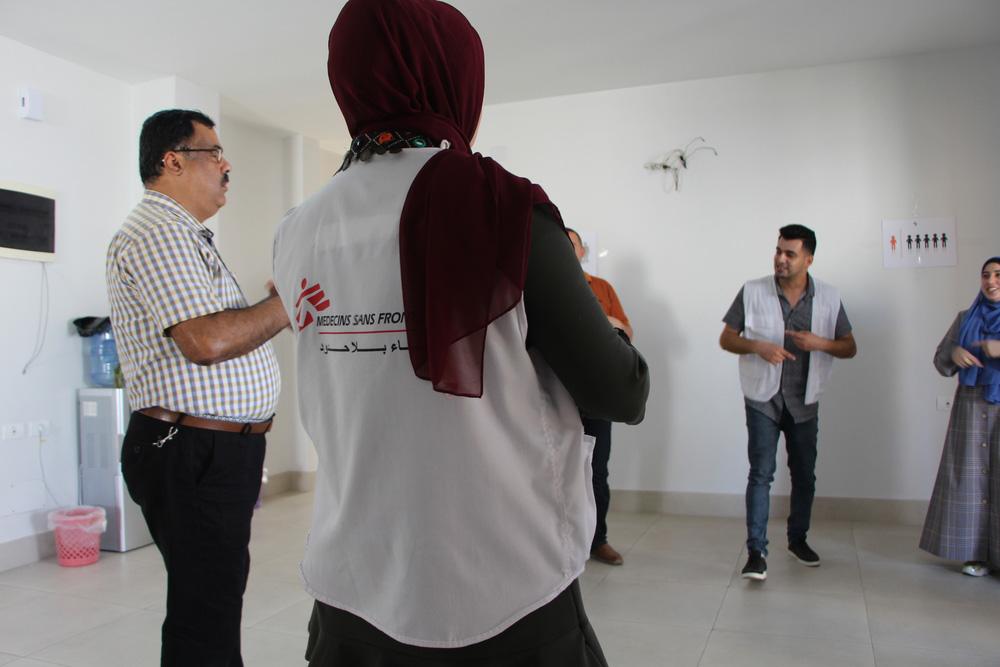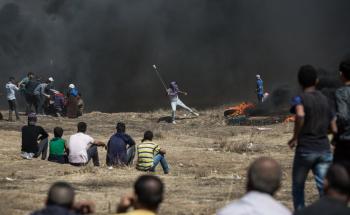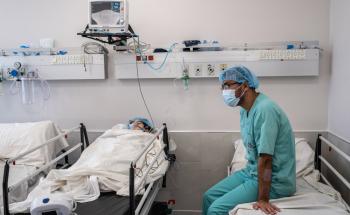Doctors without Borders (MSF) is currently working in Gaza to help healthcare workers cope with the mental health demands of their work, considering the context of their line of work. Not only have they been on the frontlines of the COVID-19 pandemic, but they’ve also worked throughout two separate, devastating wars in the same period. Recognizing the immense pressure and stress these compounding factors have on healthcare workers, MSF, which has been present in Gaza since 2020, in July 2022, has since launched a program called “Helping Helpers” to provide capacity-building sessions on strategies to cope with the psychosocial stressors inherent to working in healthcare in Gaza. Here are the testimonies of the Healthcare workers speaking about dealing with mental health in the field.
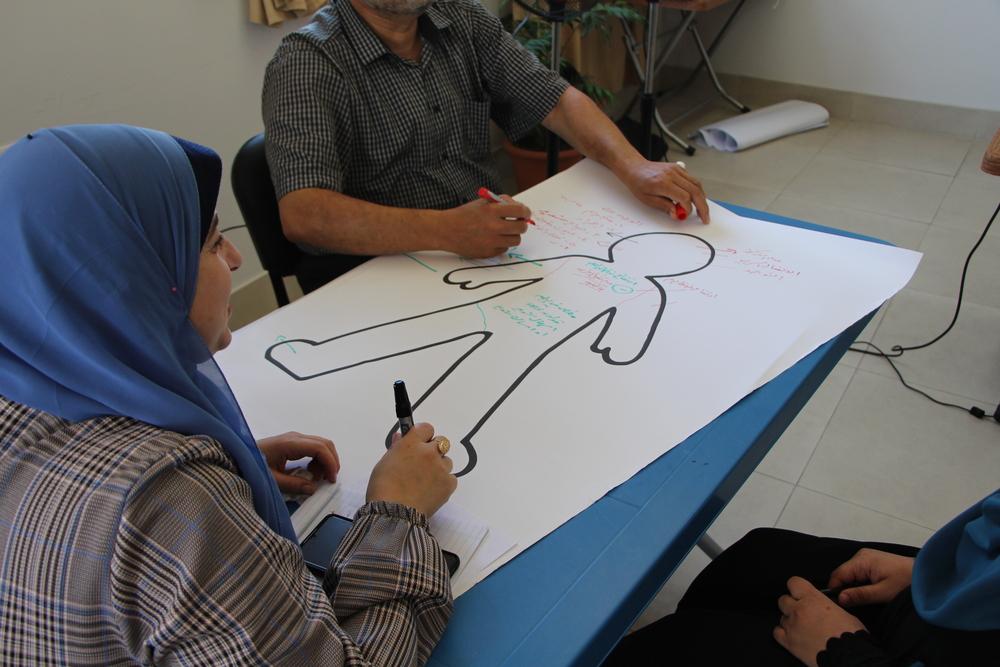
Mental Health is important for health workers because of its direct impact on our brain health, thinking, behaviour and physical health.Yasmeen, Pharmacist, Pediatric Hospital
It also has an impact on our dealings with different people, like other employees and our patients, especially in hospitals that treat patients with chronic illnesses. There are many psychological problems that occur with those patients or their families, and we need certain ways to deal with them and to deal with the work pressure that we encounter in those situations.
Haneen, Physiotherapist, Pediatric Hospital
Knowledge of mental health is very important for health field workers, because we try to approach our relationships with our patients and their families comprehensively, as well as in our relationships with our colleagues and ourselves. So we need to understand when a person is under mental stress. We can also find specific solutions and strategies that help us in solving these problems, psychological pressures, job burnout or mental problems that we encounter during work.
I would like to know more about how can I help children who have been exposed to wars, and have problems including involuntary urination. Problems like this are common in children (in Gaza) so I would like to know more to help them and parents.
I thank all the people working on this project, especially the trainers. They really moved us from a psychological gap, fatigue, and exhaustion, and we have learned new concepts and solutions to some of the problems that we face like any other human being, whether at home, at work, with colleagues, or with patients.
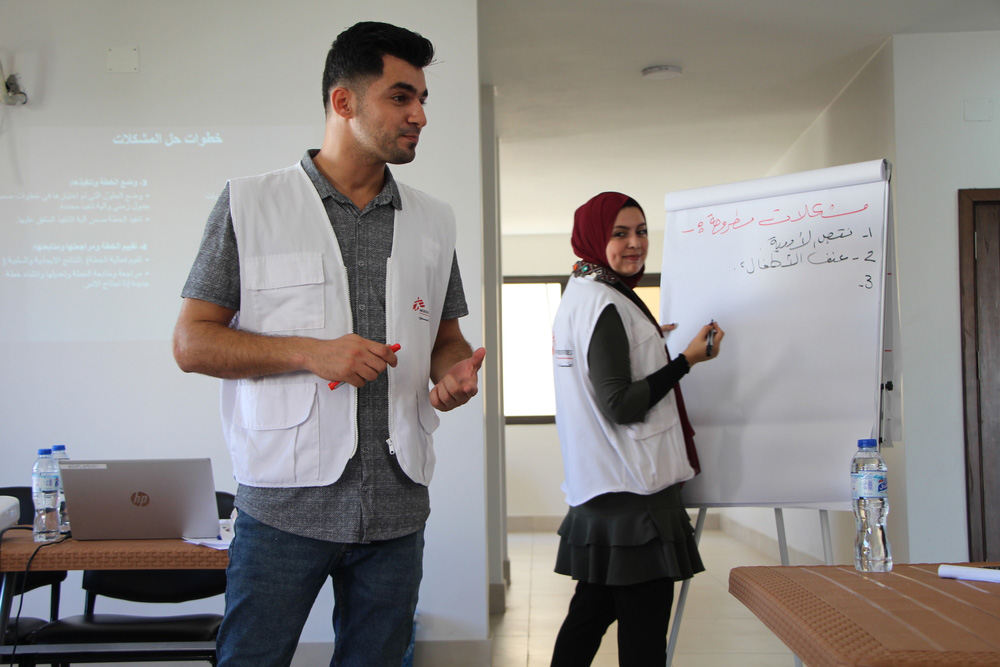
During this training, we spoke about many subjects in depth. Moreover, the trainers spoke about things we wished to speak about ourselves; you expressed things in your way that expressed what we have inside of us.Najwa, Radiology Technician
Mental Health is not only for the medical field or for the medical field, and it is for everyone. But, because we deal with physically ill people who are tired and sick, and who want someone to stand with them and care for them and deal with their problems, they need healthcare professionals who can adequately treat them and talk to them in a way that helps them, of course. We need to learn how to specially treat people with mental health needs and how to speak to them.
People in Gaza are particularly impacted by crises and shocks. The most severe crisis for children here in Gaza is war, psychological and political pressures that fluctuate every day, waiting if there is going to be a war today or not, waiting for a bomb and waiting for a missile to hit and these things. Dealing in our daily lives with fires and ambulances on the streets. So we should learn how to deal with all of these things our patients are facing.
Antonella Pozzi, Mental Health Activity Manager, Gaza
MSF decided to develop this activity since in Gaza, medical and non-medical staff deal with a population that has suffered and continues to suffer ongoing traumatic circumstances. These personnel deal with challenging situations and indirect exposure to potential trauma that, if not properly channelled, can create a build-up leading to severe psychological consequences, such as burnout.
The MSF training focuses on critical topics such as stress management, communication skills and many other mental health concepts. We aim to equip healthcare workers with more knowledge about basic mental health concepts and tools to better communicate and manage work-related stress. We’ve developed this training to perhaps one day be replicated in other MSF projects for healthcare workers.
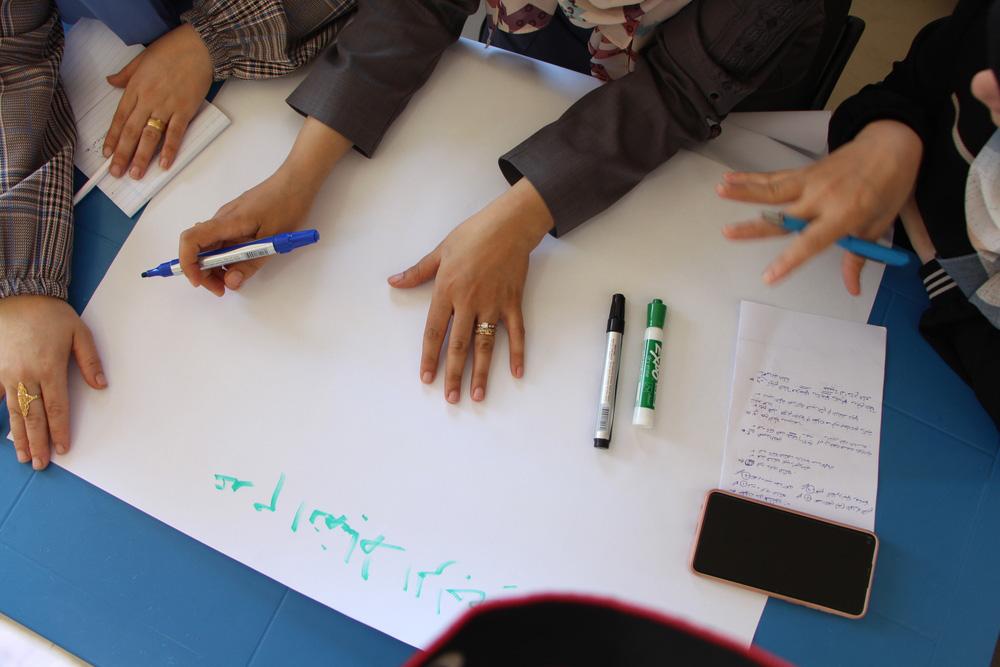
The importance of this program lies in raising the awareness of aspects of mental health, such as mental disorders and stress facing employees, and the techniques to identify and manage them.Mahmoud, MSF Psychologist and Helping Helpers Trainer
The importance of this program lies in raising the awareness of aspects of mental health, such as mental disorders and stress facing employees, and the techniques to identify and manage them.
Training the trainees on some skills such as communication skills, breaking bad news and managing anger, helps to provide better quality services to patients.
During the trainings, trainees revealed several challenges they face at work, such as the number of working hours, high pressure at work, shortage of staff, the type of patients they deal with (chronic diseases and cancer), the difficulty of dealing with some caretakers because of their high expectations from the medical staff.
It is wonderful during these sessions to see the achievement and attention on the part of the trainees. They feel that we are addressing an important topic, and we are together improving both their weaknesses and strengths, all of which has a net positive result for the trainees and patients, and therefore society.
